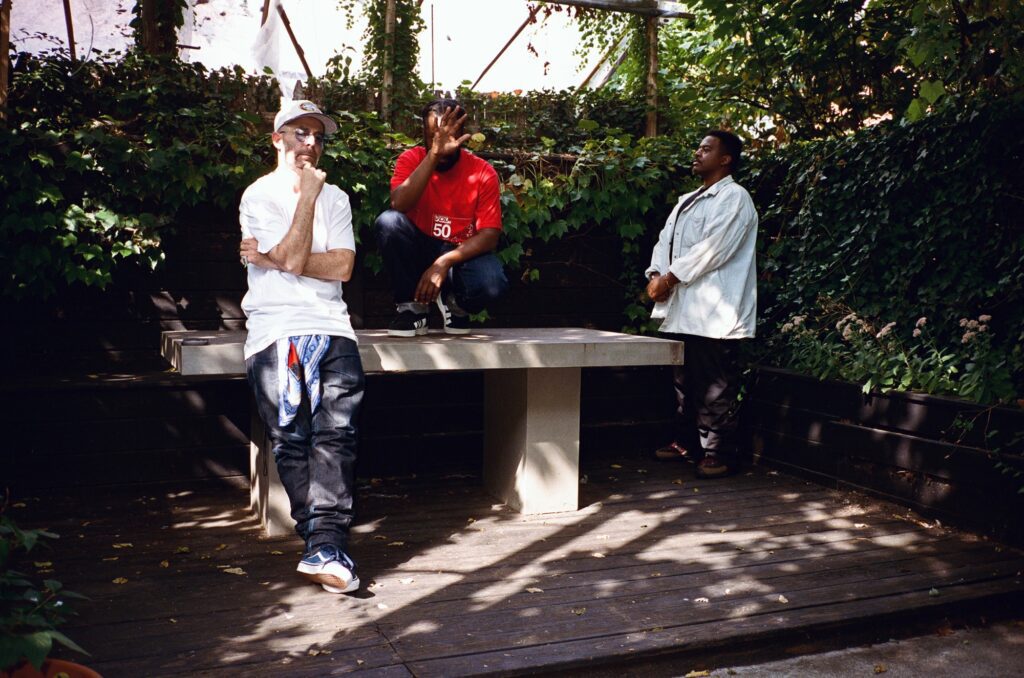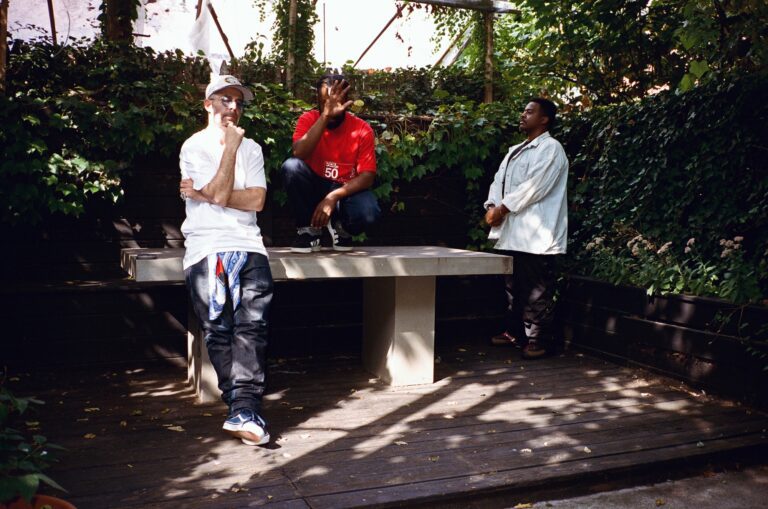
Brooklyn rap visionaries Armand Hammer — the duo of ELUCID and billy woods — reunite with legendary producer The Alchemist on “Calypso Gene,” the latest single from their upcoming album Mercy (out November 7 via Backwoodz Studioz / Rhymesayers Entertainment).
True to the group’s canon, “Calypso Gene” is dense, poetic, and political — a song that unfolds like scripture written in static. Over a haunting collage of rippling jazz piano, ghostly choirs, and spiritual distortion, ELUCID and woods trace the metaphor of water as both sanctuary and weapon — a source of cleansing and a militarized border. Their delivery, as always, is surgical: raw insight delivered through abstract heat.
The track features ethereal vocals from Silka and Cleo Reed, who lend a spectral calm that hangs like mist over Alchemist’s cinematic production. The accompanying video, directed by ByDEMILADE, extends the song’s tension between holiness and hostility — lush visuals warped by memory, stillness, and dread.
“Calypso Gene” follows the acclaimed single “Super Nintendo,” which The Guardian praised for its “beautifully noodling synth melody” and The FADER hailed as “free-flowing brilliance.” Together, these singles reveal Mercy as the next great Armand Hammer statement — a record of blood, empire, and spiritual reclamation that expands their legacy as hip-hop’s fiercest philosophers.
🎥 Watch: “Calypso Gene” (Official Video)
🎧 Listen: “Calypso Gene” (Streaming Services)
💿 Pre-Order: Mercy – Out November 7
Upcoming Show
📅 October 23 – Los Angeles, CA – Lodge Room (with Human Error Club)
About Mercy
Mercy reunites Armand Hammer and The Alchemist following 2021’s Haram and continues their exploration of chaos and clarity. Featuring Earl Sweatshirt, Quelle Chris, Cleo Reed, Pink Siifu, Kapwani, and Silka, the record builds a sonic world where prophecy meets paranoia — “made out of blood and empire, children’s laughter, unpaid parking tickets, and unkept secrets.”
For ELUCID and billy woods, it’s another masterwork of cerebral storytelling and lyrical excavation — as Pitchfork wrote of Haram: “They drag postcolonial wounds onto the examination table.” With Mercy, they go further, creating a gospel for the disillusioned.

